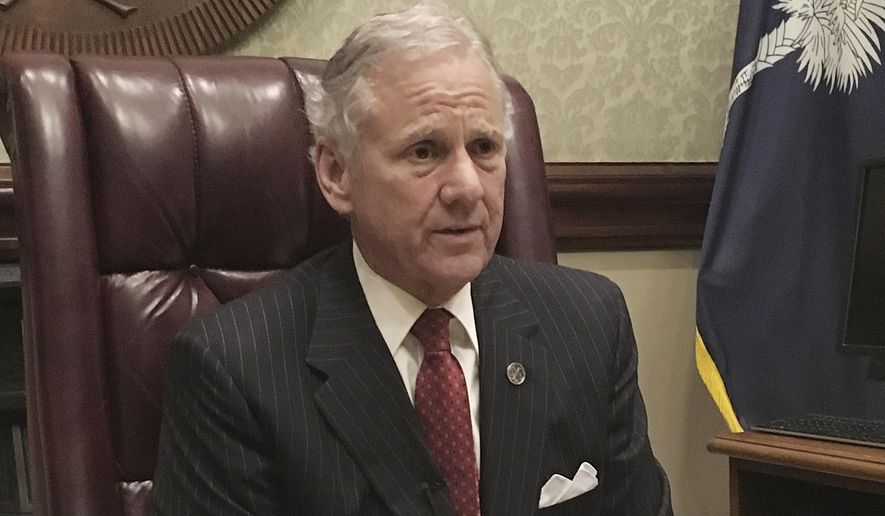The effort to defund Planned Parenthood may be stalled at the federal level, but recent legal and legislative victories have given states more power than ever to cut off taxpayer funding to the nation’s largest abortion provider.
South Carolina became just the latest state to make defunding Planned Parenthood a top priority last week, when Republican Gov. Henry McMaster issued an order directing state agencies to stop funding clinics and doctors who perform abortions.
With Republicans in control of 33 governor’s mansions and 32 state legislatures, Catherine Glenn Foster, president and CEO of Americans United for Life, said there are “plenty of different possibilities and avenues” when it comes to defunding Planned Parenthood.
“There are definitely a lot of people I think who are disappointed, even frustrated with the way things are going,” Ms. Foster said. “That said, I think there’s still a lot of hope. There’s been talk about different avenues to pursue with defunding. We know that there are a number of opportunities and options out there to defund.”
The floodgates for pro-life legislation opened up earlier this year, when Congress overturned an Obama-era regulation that prohibited states from considering whether clinics perform abortions in the allocation of Title X dollars, which are earmarked for family planning services.
The pro-life cause gained another victory earlier this month, when the 8th U.S. Circuit Court of Appeals ruled that Arkansas was allowed to exclude Planned Parenthood from Medicaid funding.
Just a few days later, Mr. McMaster directed federal agencies in South Carolina not to fund abortion providers in the state “via grant, contract, state-administered funds, or any other form.” At least 15 other states are considering legislation that would take Planned Parenthood off of the taxpayer dole.
Holly Gatling, executive director of South Carolina Citizens for Life, said the effort to defund Planned Parenthood is both a state and federal one.
“States can do this,” Ms. Gatling said. “Obama put an order in that prevented states from withholding federal funding from Planned Parenthood. Our hands were tied, the hands of the states were tied. But now that’s been rescinded. Now this is a state and federal push to keep government funding out of the abortion business.”
Planned Parenthood receives more than $500 million in annual taxpayer funding.
Previous court rulings, including from the 5th, 7th and 9th Circuit Courts of Appeal, have prevented states from defunding Planned Parenthood in the past.
Ms. Foster, a lawyer who formerly led end-of-life issues at the Alliance Defending Freedom, said the 8th Circuit ruling presents an opportunity for the U.S. Supreme Court to review the case.
“As a lawyer, as a litigator, as soon as we start seeing that divide on the state level, I start thinking circuit split, let’s take this to the Supreme Court to see what we can do,” Ms. Foster said.
Victory at the Supreme Court is far from assured, however. And even if the highest court does grant states the power to defund Planned Parenthood, those states still need to pass legislation doing that.
Writing at The Federalist, lawyer Margot Cleveland cautioned against getting caught up exclusively in the legal fight to defund Planned Parenthood.
“Have we learned nothing from the Supreme Court’s refusal to bail our country out from the Obamacare debacle?” Ms. Margot wrote. “For once, Congress must cease its evergreen abdication of authority. And citizens fighting for life must stop placing their faith in the courts to rescue the unborn from Congress’ inaction.”
• Bradford Richardson can be reached at brichardson@washingtontimes.com.




Please read our comment policy before commenting.